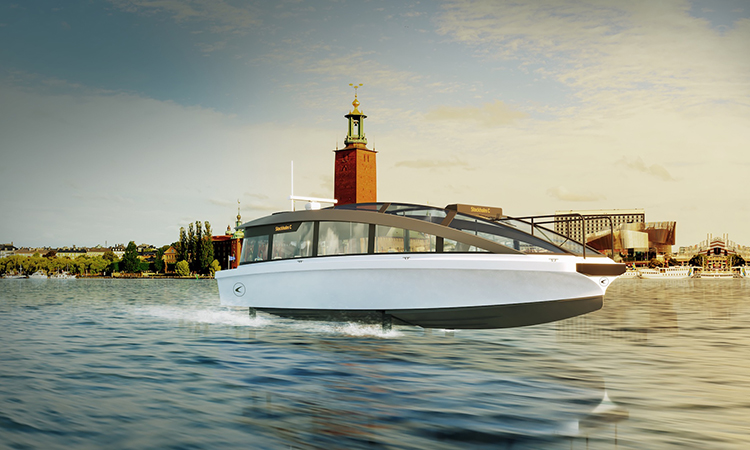Stockholm’s 30 mph electric ferry “a whole new take on public transport”
- Like
- Digg
- Del
- Tumblr
- VKontakte
- Buffer
- Love This
- Odnoklassniki
- Meneame
- Blogger
- Amazon
- Yahoo Mail
- Gmail
- AOL
- Newsvine
- HackerNews
- Evernote
- MySpace
- Mail.ru
- Viadeo
- Line
- Comments
- Yummly
- SMS
- Viber
- Telegram
- Subscribe
- Skype
- Facebook Messenger
- Kakao
- LiveJournal
- Yammer
- Edgar
- Fintel
- Mix
- Instapaper
- Copy Link
Posted: 26 March 2021 | Intelligent Transport | No comments yet
New electric ferry could revolutionise the transport industry according to its maker, as it looks to launch its passenger ship next year.


The P-30 consumes roughly the same amount of energy as an electric-hybrid bus Credit: Candela
The world’s fastest all-electric passenger ferry will hit Stockholm’s waterways in 2022, shuttling passengers to and from the archipelago above the waves without wakes, noise and CO2 emissions.
Ferries are used by commuters all over the world – indeed in cities such as Sydney or New York they are some of the most important transport modes within the network. Yet they can be slow, as well as polluting.
Swedish tech company Candela is seeking to change that, as it looks to implement its all-electric commuter ferries that soar above the waves on foils, quietly and efficiently carrying passengers at speeds up to 30 knots (34 mph). Candela says its new 30-passenger ferry P-30 will commence operations as soon as next year, with the intention of eventually replacing the city’s fleet of 60 diesel boats that serve commuters and visitors to and from the vast, 30 000-island archipelago that stretches from the city centre.
At its introduction, the Candela says P-30 will set several world records. It will be the longest-range electric passenger ship, as well as the fastest. It will also be the most energy efficient fast ship ever built, according to the tech firm.
Funded jointly by Candela and the Swedish transport authority, the P-30 flies on computer-controlled hydrofoils, which Candela says reduce energy consumption by 80 per cent compared to the best fast ferries in service today.
The higher service speeds will allow the new P-30 ferry to shuttle more passengers than other electric ships and it will be able to service even the longest routes because it can travel more than three hours at 20 knot cruise speeds before recharging.
The P-30 can also operate in urban waterways at higher speeds than traditional passenger boats because it creates little wake that would otherwise damage nearby vessels or property.
“Today, most of our waterways are unused for mass transit, even though most highways are congested during rush-hour traffic. Opening up urban waterways for high-speed electric transport can revolutionize commuting in cities such as San Francisco, Seoul or Amsterdam – at a very low cost,” said Gustav Hasselskog, the founder and CEO of Candela. “There’s no need to build new infrastructure.”
Candela claims a recent report by the municipality of Stockholm estimates the overall cost of operating the P-30 will be half the cost of conventional diesel ferries.
The P-30 consumes about 3 kWh per nautical mile, which is one tenth of a conventional ship and comparable to the energy consumption of a modern electric-hybrid bus.
“Our goal is to prove that our electric hydrofoil ferries are much cheaper, more comfortable and a lot more versatile than conventional vessels. It’s not just an alternative to other ships, but a whole new take on of public transport,” said Candela’s Director of Public Transportation Erik Eklund.
Related topics
Air Quality, Alternative Power, Fleet Management & Maintenance, Passenger Experience, Public Transport, Sustainable Urban Transport
Related modes
Ferry
Related cities
Stockholm
Related organisations
Candela, Transportstyrelsen
Related people
Erik Eklund, Gustav Hasselskog







